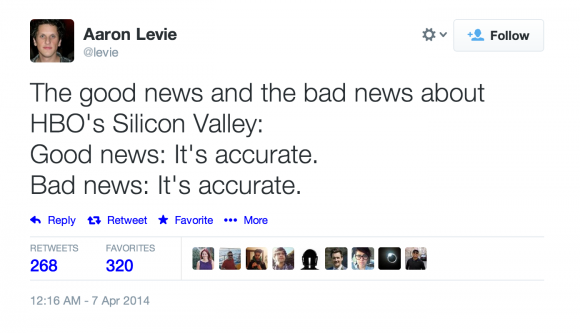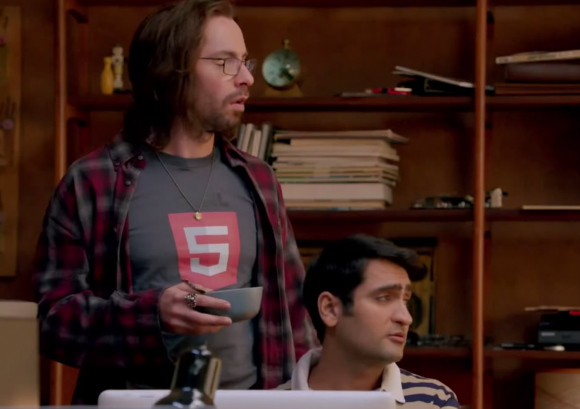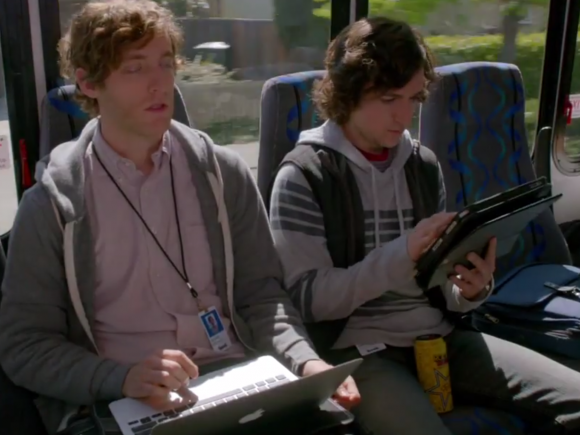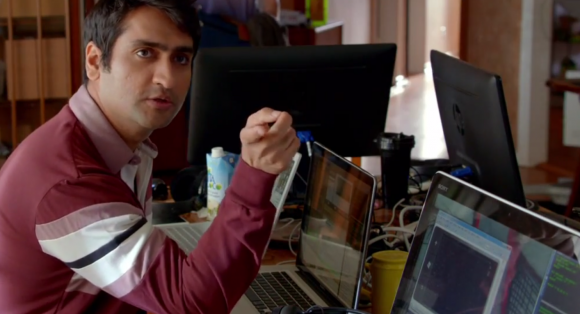Why it’s important to learn how to speak tech
For six weeks between junior and senior year of high school, I went to the Governor’s School for International Studies, where I took an immersion class in Japanese. The first week, we learned the words for chair, teacher, and bathroom, and verbs. The second week, we weren’t allowed to speak English. As much as I enjoyed learning the cadences of Japanese, what I enjoyed even more was the getting rid of the nuances that made me sound American.
For example, Japanese has a special stop sound that people make instead of “umm.” It’s either “anoo” or “etoo”, depending on context. I spent the six weeks of my Japanese class consciously replacing every time I said “umm” with “anoo.” It is damn hard to catch yourself making unconscious noises.
Later, when I was in Israel, I forced myself to practice my rhotic Rs so I could get the Israeli discount at falafel shops.
I was insufferable in high school. (Ed. note – only in high school?)
I love languages, but what I love more about languages than the mechanics themselves is they allow you into someone’s culture, and if you speak the right phrases, knowing a language beyond its bones is like a lock that opens a key to a different, deeper level of that person, and that culture.
What’s really cool is that you don’t have to leave English at all to experience this. ![]()
Truck drivers have different slang than doctors (just read the archives of one of the first blogs I started following 8+(!) years ago, the Underwear Drawer, when its author was still in med school), who have different slang and worldviews than stay-at-home moms . If each of these different communities could understand that when we’re communicating with someone they’re perceiving it from their lens rather than ours, it would reduce all miscommunication by half.
Unfortunately, culture is one of the things you can’t learn from a classroom. You have to learn it by living it and absorbing it through your skin.
Mike Judge is one of the best people at thinking this way today. When he created Office Space, one of my favorite movies of all time, he brilliantly captured the feel of corporate America with even every single nuance accounted for. Even just the tiny things like the printer not working (printers never, ever work in offices) and the pieces of flair that are so prevalent in places like TGIFriday’s and Ruby Tuesday add to the overall experience so much so that thousands of people swear Judge worked at their office.
He’s made it clear that he can speak different languages in his latest show, Silicon Valley, on HBO.
Part of this probably has to do with the fact that he worked a stint in Palo Alto before moving on to TV, but it doesn’t matter, because startup culture today has its own special nuances different than the culture decades before it, and he was able to grok it as well.
Judge nails the way startup culture, and to an extent, tech culture works today, and in doing so, shows how ridiculous it is.
In the show, the main character, Richard, is a mild-mannered beta-geek who works at Google-like giant Hooli manned by a charming psychopath visionary (played by the same guy who was creepy Albie on Big Love.) In his spare time, he lives in a startup incubator with a couple other guys, working on a lossless compression algorithm that scans all known media to see if the music you own is out of copyright compliance.
The brogrammers at Hooli make fun of him, but word of his startup eventually gets to the CEO, who starts a bidding war for Pied Piper with a Peter-Thiel/Paul Graham-like figure who drives in a compact car that’s the size of a bicycle to reduce his carbon footprint. By the end of the episode, Hooli and Peter Graham are in a bidding war for equity or a buyout of his company, and Richard’s on his way to becoming a millionaire.
Does any of that seem funny? If it does, you probably work in tech or read Hacker News.
To me, it’s perfect.
All the right signals, the ones that say, “Trust Mike Judge, he knows what he’s doing,” are there. For example, the main character constantly wears a hoodie. This is a blatant nod to Zuckerberg, but also signals the fact that Richard is very insecure. Or, it could mean that he’s just wants to be like every other dude from 25-50 working in tech, all of who wear casual clothes as much as possible. The way everyone else on the show dresses also gives signals. People who wear jeans but really nice shirts that make it seem like they’re not really wearing jeans are executives. People wearing shirts with startup logos are broke and don’t have money to do laundry.
Second, the technology is correct. When I saw the teaser trailer, I did a double-take. A guy had an HTML5 shirt. HTML5 is an actual thing! It’s not something that the producers made up! And what’s even cooler is that HTML5 is the new hotness right now, so it’s actually relevant, as well.
It shows how most of us use tech on the go: not pristinely, glamorously sitting on a counter. Usually, it’s juggled on our laps, in thick cases, with our work badges splayed out for everyone to see.
And, they write code just like the rest of us!
I couldn’t get a great screenshot of this, but it’s obvious that the show put up real code editors: SublimeText and Powershell. This seems really stupid and pedantic, but to geeks, it matters, because we’ve been subjected to decades of bad code on TV. Hollywood doesn’t care about portraying code correctly because code doesn’t make for good action shots. But it should, because if you get the little details right, you’ll be the larger ones right, as well.
And, the culture. It’s just so right, and it can be summed up by this one picture:
I guess what I like most is that Judge made a smart show filled with accuracy to the people like me who are pedantic about it. He’s trying to appeal to a mass audience, but he’s really speaking to people who know the industry and can vouch for it. Details matter.
Compare this to supposed favorite nerd-festival Big Bang Theory, which is so popular not because it glorifies smart people, but because it’s coming from Penny’s point of view. “Look at these geeks,” Penny says to the audience, snickering, every time Sheldon or Leonard do something. The scientific facts they spout aren’t meant to educate or further the plot, but just serve to point to the fact that these nerds are talking way too much about stuff regular people couldn’t care less about.
What’s really interesting to me on a personal level is that, a couple years ago, half of this show wouldn’t have made any sense. There are hundreds of billions of dollars of jobs in the tech industry. The tech industry is going to save America. But for all its luster, it’s still incredibly hostile to newcomers, not because of any inherent bias, but because it’s still largely merit and knowledge. There is a LOT OF STUFF to know, and the more you know, the more regarded you are. Some people will be encouraging and teach you things, but sometimes, it seems intimidating to ask questions, especially of people who have been programming since they were fifteen. Some of these people programmed in assembly language. Some people were so hardcore that they didn’t even wait until computers came out. They were writing programs on notebook paper and running them by burning the pages.
But, all of a sudden, tech an economic boom and everyone and their sister wants to get into it, which is great, because it means more people making more great stuff. But, how to get into it? A couple weeks ago, I had coffee with someone who’s looking to get into analytics and was looking for advice. “What should I do to understand the tech industry,” they asked.
And I thought for a minute. How do you learn a language that you can only learn by being exposed to the culture? There are books for learning Italian. There are no books for learning to speak tech. I mean, sure, there’s O’Reilly. But reading is one thing.
You can only learn what a server is by that feeling in your stomach when one goes down, what rm -rf does when you wipe out a directory you didn’t mean to, and how much space in gigs things take up when you run out of memory and can’t back up your data.
So I thought for a minute and said, “Read Hacker News. Read it every day. You won’t understand 90% of it to begin with, and you won’t care about 95% of it. (I didn’t. As I write, the top ten stories are on two-factor authentication, DOMS,Tarsnap, and Lispy Python. I’m excited that I know what all of these are, but it took months and months of reading to absorb. ) But the more you read it, the more you’ll get. Look up words you don’t know. Ask me questions. Click on comments. Read people’s experiences. Wander loose around the Internet, your mind open like a sieve, and let the writing wash through it. Some of it will stick. Later, more of it will. ”
In addition to being in the thick of the action, it helps to have a second place that reads, kind of, like a dictionary. It took me over three years to “start getting it”, and I’m still learning by reading, and less frequently, by breaking things. So maybe what I really appreciate about Silicon Valley is that it’s obvious that someone else knows stuff because they broke stuff, too.
So, I’m curious how both tech people and non-tech people perceive this show that I think is so great and so spot-on, and does it matter? And what is it saying about where we are as an economy, as a culture?I’m don’t know, but like I said, I do appreciate the full-on cultural and linguistic accuracy.
Here’s the pilot episode, in full for free from HBO. You can Judge for yourself:




